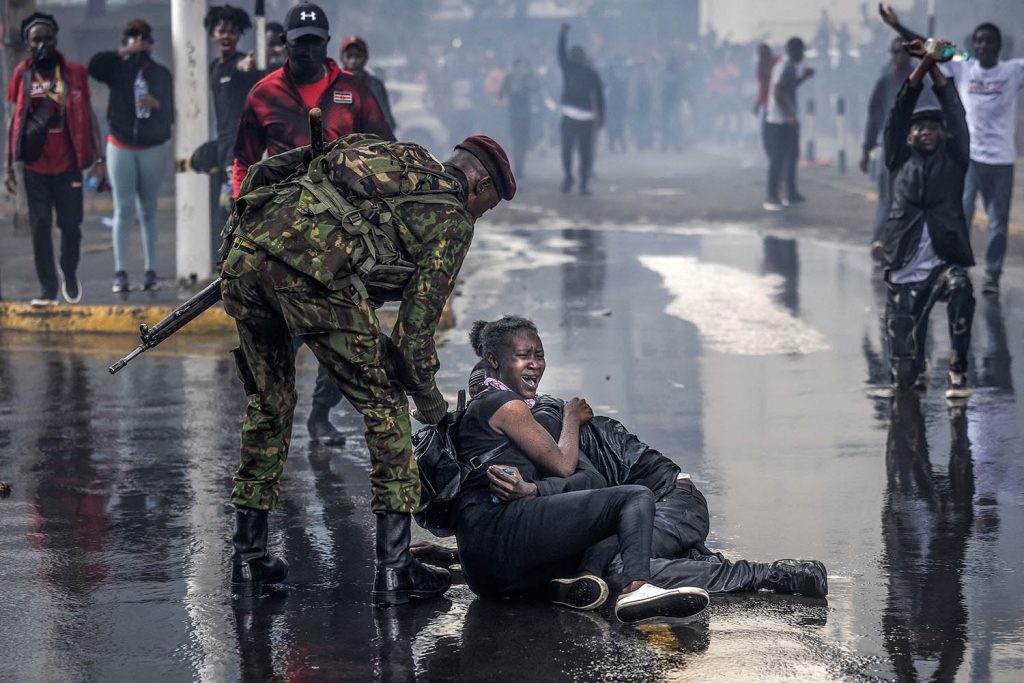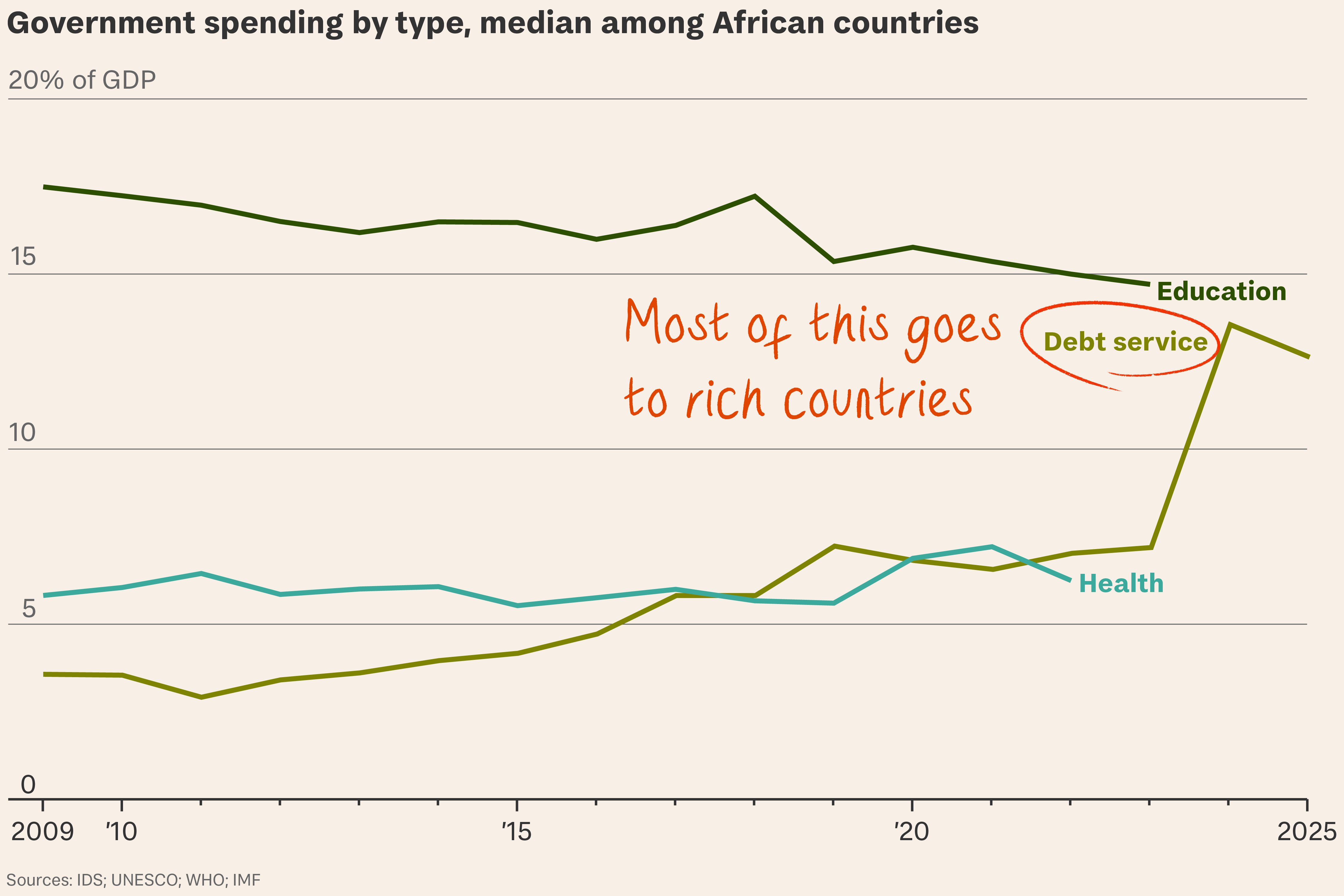
Kenya’s government has enforced emergency security measures after its parliament was set on fire yesterday and ten people were killed in protests over tax rises. President Ruto’s initial proposals to introduce $2 billion worth of levies on basic goods such as bread, cooking oil and sanitary items have prompted a wave of anger across the country that transcends tribal differences and is felt particularly among the young. Ruto has been ruthless in attempts to raise revenues and reign in Kenya’s deficit to comply with an IMF programme, while carefully cultivating his presence on the world stage: on the same day demonstrators stormed parliament and forced MPs voting on the bill to evacuate, Kenya sent 400 police to Haiti as part of a US-backed peacekeeping mission. But what might please international investors has backfired spectacularly with Kenyans.
Since Ruto took power in 2022, he’s listened keenly to the demands of the IMF and World Bank to address the country’s heavy debt burden by pushing through a series of unpopular taxes. “Kenya is not IMF’s lab rat,” read one placard carried at the protest yesterday. “We ain’t IMF bitches,” said another. Many of Ruto’s initial proposals, including a 6 per cent sales tax on bread and 25 per cent duty on cooking oil, have been dropped on account of their unpopularity. But others, including a tax on smaller “specialised” hospitals, remained in the bill that was passed yesterday and will now go to Ruto for his assent. Kenya’s budget deficit currently stands at 5.7 per cent of GDP. Ruto’s planned tax rises of $2.3 billion would have brought it down to 3.3 per cent next year. They have earned him the moniker “Zakayo”, the Swahili name for the biblical tax collector Zacchaeus.










